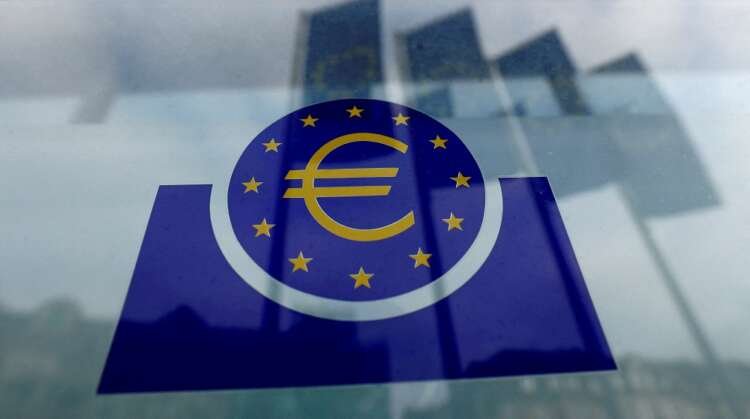Euro zone inflation soars to new high, intensifying ECB dilemma


FRANKFURT (Reuters) – Euro zone inflation soared to another record high last month, intensifying a policy dilemma for the European Central Bank, which will need to convey a sense of calm amid war-related market turmoil but also respond to mounting price pressures.
Inflation in the 19 countries sharing the euro accelerated to 5.8% from 5.1% in January, the highest figure in the bloc’s two decades, beating expectations for 5.4% and also confounding the ECB’s own projection for a drop, data from Eurostat showed on Wednesday.
A 32% jump in energy costs drove inflation last month but unprocessed food prices were also up sharply, rising 6.1% and making inflation especially painful for lower income families.
With energy prices soaring due to Russia’s war in Ukraine, inflation will exceed 6% as soon as this month, analysts said, and even the full year average will be over 5%, more than twice the ECB’s 2% target.
As price pressures had been building for months, the ECB was all but certain to accelerate its exit from ultra easy policy at its March 10 meeting. But the war has thrown those plans into turmoil, leaving the policy outlook uncertain.
Still, policy hawks have not fully abandoned their calls for tighter policy as price pressures are now broad and not merely a function of a spike in oil prices.
“If price stability requires it, the ECB Governing Council must adjust its monetary policy course,” Bundesbank President Joachim Nagel said. “We need to keep our sights trained on the normalisation of our monetary policy.”
Nagel, however stopped short of making the case for the ECB to curb stimulus already on March 10.
Hawks argue that given a surge in underlying inflation, which filters out volatile fuel prices, maintaining exceptional stimulus is inappropriate.
The problem for the ECB is that, while war is likely to boost prices above all forecasts this year, it is a negative for both growth and inflation in the longer term, a horizon that is more relevant for the central bank.
High energy costs sap household purchasing power, eat into corporate margins and weigh on investment. They are also likely to impact the price of other goods and services, particularly food prices, as natural gas is the biggest cost in fertilizer production.
Meanwhile financing conditions have already tightened, mainly due to falling share prices, particularly a 25% drop in the euro zone bank index since mid-February, although there has been no broad market turmoil.
ECB board member Fabio Panetta, an outspoken policy dove, has already made the case for holding off on any further policy tightening.
ECB Vice President Luis de Guindos, considered a centrist, acknowledged that the February inflation figure was a negative surprise but warned that war will dent growth.
“It is to be expected that the conflict through the macroeconomic channel and the channel of confidence and sentiment in the markets will end up having an impact from the point of view of higher inflation and lower economic growth”, de Guindos said.
Markets, which priced in 50 basis points of interest rate hikes this year just weeks ago, now only see around 20 basis points worth of increases.
The ECB will next meet on March 10 and the policy decision remains wide open and subject to developments in Ukraine.
(Reporting by Balazs Koranyi; editing by John Stonestreet and Chizu Nomiyama)
Explore more articles in the Top Stories category











